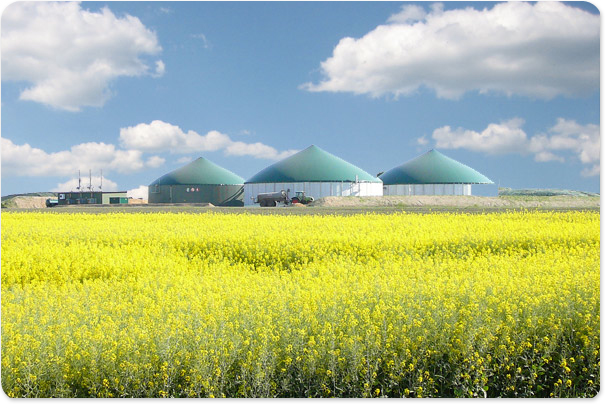Advantages of dry fermentation processing
- Compact design, modularly expandable
- Minimal maintenance, robust technology, low machine/technical costs
- Few moving parts, low wear and tear
- Latest control systems utilise process control engineering
- Low energy consumption of processing operations
- High gas yields plus superior gas quality
- Use of existing machinery to fill biomass (wheel loaders, front loaders)
- Insensitive to distributing materials (e.g. foil, untrimmed logs, sand, etc.)
- No costly storage for fermenting substrate (as compared to wet processing)
- Reduce wastevolume by 60% at lowest cost
- Additional cost advantages in countries or areas with water shortage
German Biogas technology provides the most effective process to prepare, store and ferment input materials, depending on your particular requirements.
Our solutions are extremely flexible for diversified industrial waste, such as:
- Wastewater from the paper industry
- Protein waste from the pharmaceutical industry
- Waste from the food and beverage industry (dairy, floatation tailings, offal, etc.)
- Leftovers from the food industry
Critical advantages of the German Biogas system: low investment costs, low operating costs and a high level of dependability.
- The digester is a gas-tight completely sealed tank made from steel or concrete with two foil layers and a bio-desulphurisation system inside.
- Maintenance of the systems can usually be carried out while the system is running, providing efficient hourly use and allowing for maximum hourly operation.
- The automated operation system controls the operation of the biogas plant. Within the control procedures, components can be automatically or manually controlled or switched on and off.
More output from waste:
- The two main products biogas can be used for is to generate electric power, or with innovative technology, biogas can be treated to reach the quality of natural gas and be used as fuel.
- The thermal heat produced by the CHP can be used to heat the biogas facilities and some heat can be accessed to generate heat/cooling energy.
- Solid residue can be used as organic fertilizer.
- Economic Profitability
- Agriculture
- Municipal Solid Waste
- Biological Solid Waste
- Dry Fermentation

